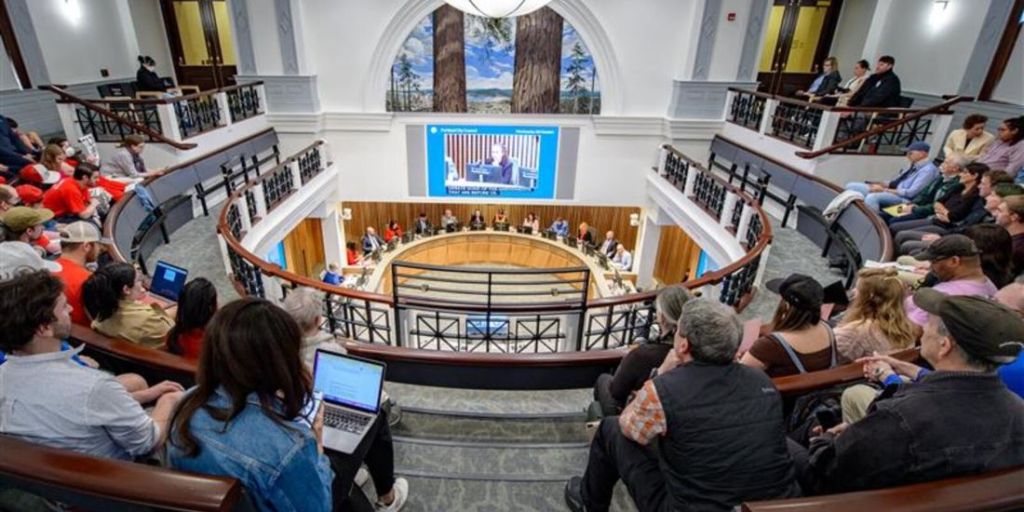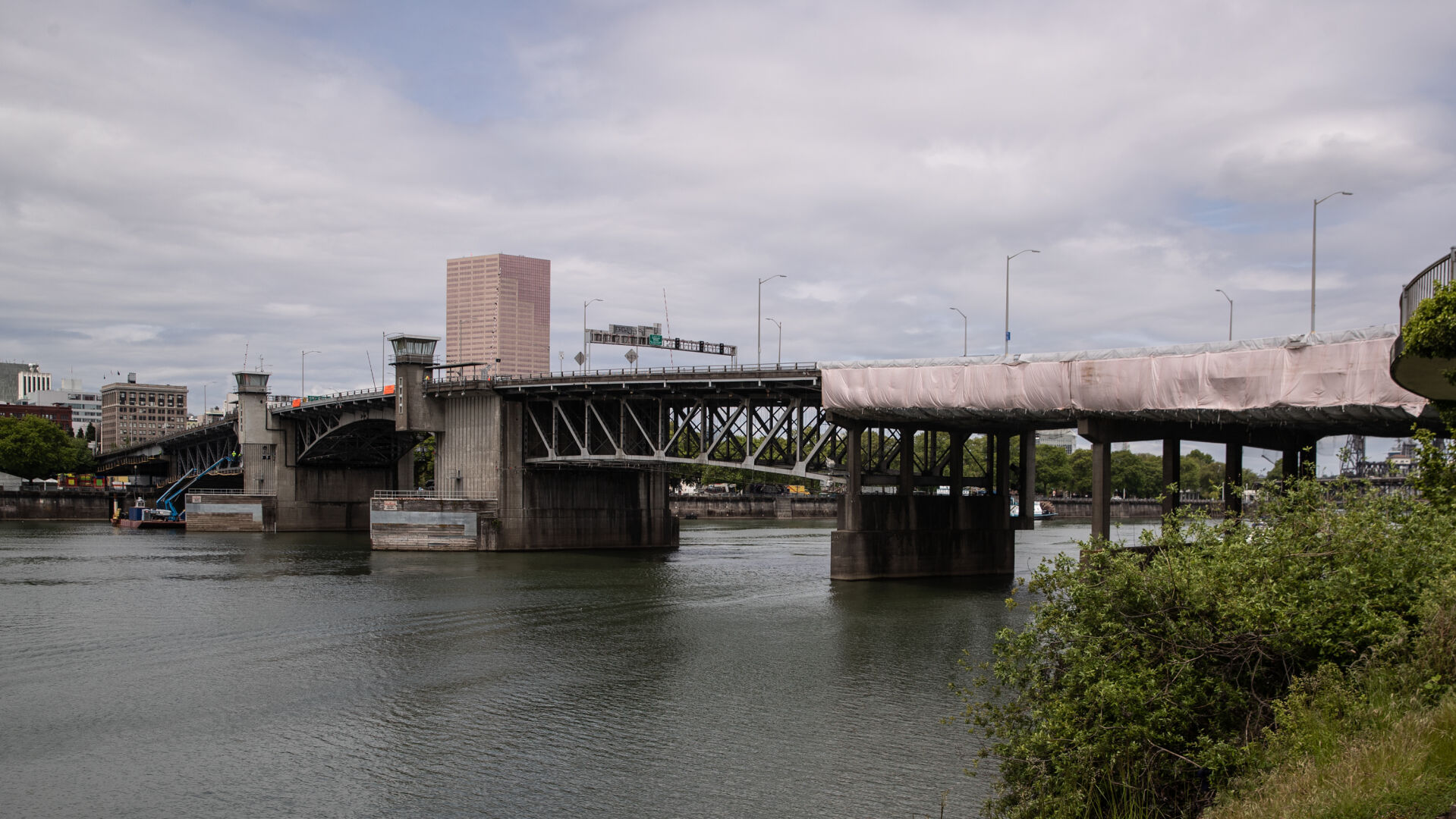Contentious City Council tentatively adopts balanced Portland budget
Published 8:51 pm Wednesday, June 11, 2025

- The Portland City Council chambers were packed when the council considered the next city budget on Wednesday, May 21. (Courtesy photo submitted by City of Portland)
The Portland City Council preliminarily approved a balanced $8.6 billion budget after a lengthy and frequently acrimonious meeting on Wednesday, June 11. The final vote is June 18.
“This is sort of a learn-as-you-go experience,” District 4 Councilor Olivia Clark said shortly before the new 12-member council voted on their first fiscal year budget.
Despite a marathon session, most of the budget approved by the council that takes effect on July 1 was unchanged from the one considered two weeks earlier. As proposed by Mayor Keith Wilson, it included staff layoffs and fee increases to eliminate a $100 million general fund shortfall.
Trending
Among other things, the tentative approved budget continues funding Wilson’s plan to create enough additional shelter space for all unsheltered homeless Portlanders by the end of the year. That includes $23 million to open 1,500 new shelter beds, $40 million to continue operating eight existing shelters serving more than 800 people at a time, and funding for 50 beds for homeless people in need of addiction recovery services.
The most highly publicized contentious issue ended in an awkward compromise introduced by District 4 Councilor Mitch Green the council moved $2.2 million in unspent funds from the current Portland Police Bureau budget into a council-controlled pool set aside for all public safety bureaus – including police, fire, 911, Portland Street Response and emergency management — to help all of them recruit workers. The council had previously agreed to transfer $1.9 million from the next police budget intended to hire more officers to Portland Parks & Recreation for maintenance.
Police funding remained controversial during the hearing, however, with the council defeating an amendment introduced by District 1 Councilor Candace Avalos to move 75% of the money projected for police overtime — approximately $15 million — into a council-controlled fund.
Councilors did approve one new rule related to police overtime, however. A budget note, introduced by District 2 Councilor Sameer Kanal, directs PPB to prioritize using overtime hours on programs focused on human trafficking, gun violence reduction, retail theft, and other smaller police programs, not responding to political demonstrations.
The budget also increases funding for Portland Street Response, the non-armed alternative to police to respond to non-dangerous 911 calls, proposed by Wilson.
One of the final votes was to cut approximately $41,000 from each councilor’s office to balance the overall city budget that takes effect on July 1.
Trending
Much of the hearing was consumed over a last-minute decision about whether to provide Multnomah County with $4 million to open a sobering center for severely intoxicated people. Although the council supports the center, it withheld the money because the county recently delayed the opening of the center from 2026 to 2027.
The Multnomah County Commission is scheduled to approve its budget for the next fiscal year on Thursday, June 12.
- During the Wednesday session, councilors also voted to:
- Approve using $1 million from the Portland Police Bureau’s asset forfeiture fund to support evidence-based crime prevention and research on crime prevention strategies.
- Agree to use roughly $1 million from the opioid settlement to support long-term mental health and drug treatment housing in District 1. The opioid settlement requires drug manufacturers and retailers to compensate local, state and tribal governments for their role in the opioid crisis.
- Support a home-sharing pilot project to match renters with spare rooms in existing homes.
- Reduce staffing in Civic Life and restore proposed cuts to three community programs: Diversity & Civic Leadership, District Coalition Offices and Small Grants.
- Direct the city attorney to analyze the legal implications of having U.S. Immigration and Customs Enforcement facilities in sanctuary cities.
The council’s budget-setting process was markedly different under the City Charter reforms approved by Portland voters in November 2022. The size of the council was increased from five members elected citywide to 12 elected in four geographic districts. All bureaus are not overseen by a professional city administrator instead of council members assigned by the mayor. As a result, when councilors wanted to change something in a bureau budget, they did not negotiate with the member in charge of it. Instead, they offered amendments for the entire council to consider, with no single member responsible for the bureau’s final budget.
Debates over amendments on Wednesday were frequently heated, with some councilors complaining they had not received answers to their questions from the city administrator or had been betrayed by other members at the last minute.
The hearing began at 9:30 a.m. and ended around 8:45 p.m.
The final vote is scheduled for June 18. Councilors will be able to introduce additional amendments at that meeting, but they must have the support of at least nine council members. Wilson can vote to break a tie.
The final vote is scheduled June 18. Councilors will be able to introduce additional amendments at that meeting, but they must have the support of at least nine council members. Wilson can vote to break a tie.







